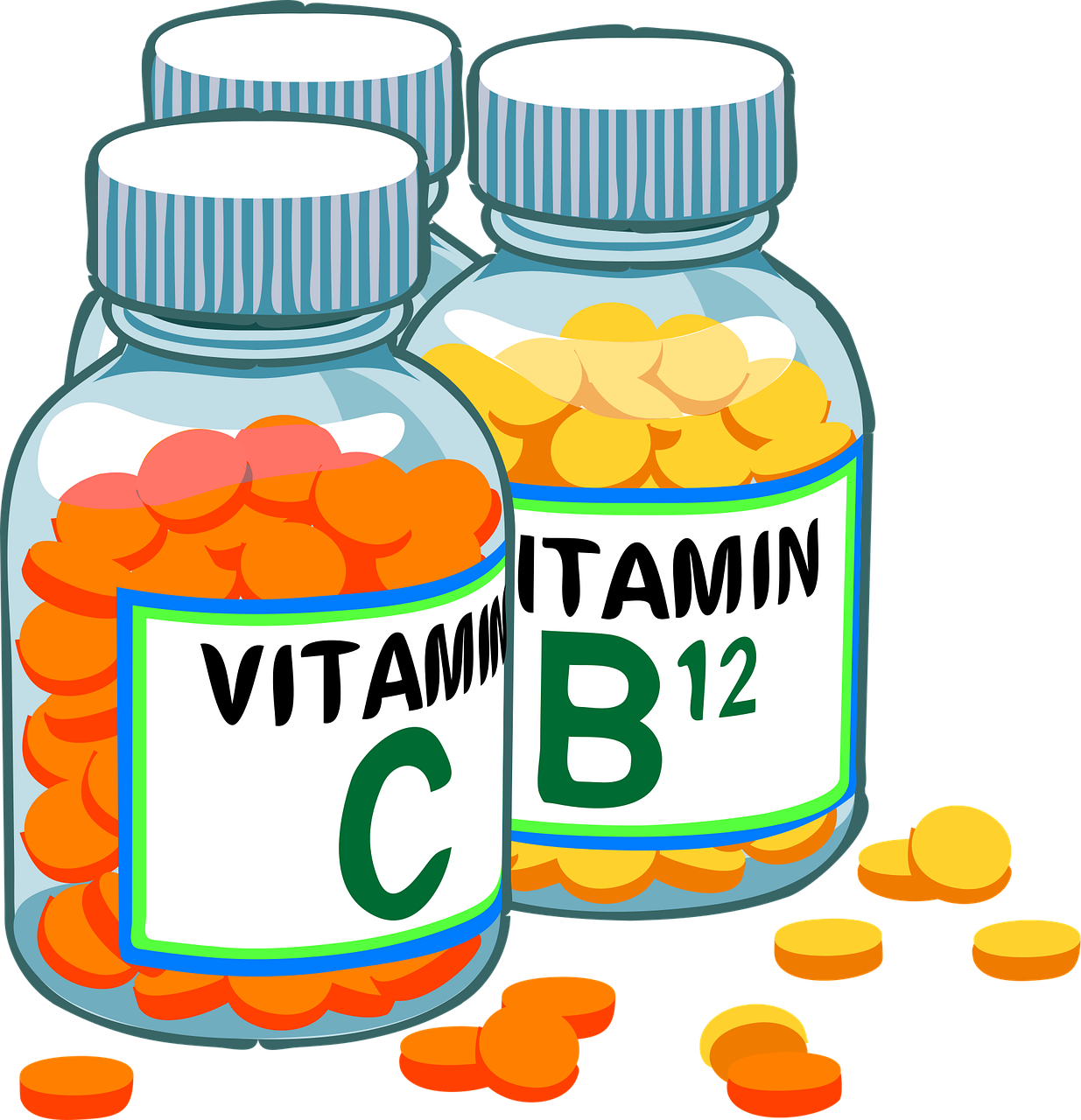This article was analyzed by Serge, MSc. Leveraging expertise in Biochemistry and Chemical Quality Control, I share insights and recommendations backed by research and clinical evidence to ensure you find safe and effective supplement solutions.

Aging is inevitable, but the right nutrition can help you maintain youthful skin, higher energy levels, and overall vitality. Vitamins are essential for cell repair, immune function, and protection from oxidative stress. By understanding the key vitamins and how to integrate them into daily life, you can significantly support health and appearance over time.
This guide explores essential anti-aging vitamins, how to spot deficiencies early, practical supplementation strategies, and lifestyle habits that enhance the effects of nutrients.
Why Vitamins Are Crucial for Anti-Aging?
Vitamins act as cofactors for critical biological processes. They help cells repair, maintain proper function, and prevent damage from free radicals.
Vitamin B12: Crucial for red blood cell production, neurological function, and energy metabolism. Low levels can cause fatigue, mood changes, and cognitive decline.
Vitamin D: Supports bone strength, immune function, and hormone balance. Deficiency can increase the risk of fractures, immune issues, and chronic fatigue.
Vitamin E: A powerful antioxidant that protects skin and other tissues from oxidative stress, reducing visible signs of aging such as fine lines and skin dryness.
Other vitamins, including C, K, and A, also play critical roles in collagen production, skin elasticity, and overall cellular health.
Early Signs of Vitamin Deficiency.
Recognizing deficiency signs helps prevent long-term damage:
1. Fatigue and Low Energy – Often associated with B12 deficiency.
2. Dull or Dry Skin – Could indicate low Vitamin C or E intake.
3. Bone Weakness – Vitamin D deficiency reduces calcium absorption, increasing fracture risk.
4. Hair Thinning or Brittle Nails – B12, Biotin, or Vitamin D deficiencies may be contributing factors.
5. Cognitive Fog or Mood Changes – Low B12 can impact focus, memory, and emotional well-being.
Identifying these early allows proactive nutrition or supplementation strategies.
Top Anti-Aging Vitamins and Supplements
Here’s a comparison table summarizing the top vitamins, benefits, natural sources, and recommended dosages:
| Vitamin | Main Benefits | Natural Sources | Commonly Referenced Daily Values* | Supplement Tips |
|---|---|---|---|---|
| Vitamin B12 | Supports energy, neurological function, red blood cells | Meat, fish, eggs, dairy, fortified plant-based milks | 2.4 mcg | Sublingual tablets or sprays improve absorption, especially for vegetarians or older adults |
| Vitamin D | Supports bone health, immunity, hormone regulation | Fatty fish, fortified dairy, sunlight exposure, mushrooms | 600–800 IU | Vitamin D3 is preferred; supplementation is essential in low-sunlight areas |
| Vitamin E | Antioxidant, protects skin, reduces oxidative stress | Nuts, seeds, spinach, avocado | 15 mg | Mixed tocopherols supplements offer broader benefits; combine with Vitamin C for skin support |
| Vitamin C | Supports collagen production, immunity, antioxidant defense | Citrus, bell peppers, broccoli, kiwi | 75–90 mg | Buffered or liposomal forms reduce stomach upset and improve absorption |
| Vitamin K & A | Supports bone health, vision, and skin cell turnover | Leafy greens, carrots, sweet potatoes, liver | K: 90–120 mcg; A: 700–900 mcg | Consume with healthy fats for better absorption |
*** Values listed are for general informational purposes only and are not intended as medical or nutritional advice. Individual needs may vary. Always consult a qualified healthcare professional before starting supplements.
How to Combine Vitamins for Maximum Benefit?
Strategic vitamin intake improves absorption and effectiveness:
Morning: Vitamin B12 + D for energy and immunity.
With Meals: Vitamin C + E for antioxidant protection and skin health.
Evening: Multivitamins with K and A to support bones, vision, and cell turnover.
Fat-soluble vitamins (A, D, E, K) are best absorbed with dietary fat, while water-soluble vitamins (B12, C) can be taken on an empty stomach for better absorption.
Lifestyle Tips That Amplify Anti-Aging Effects.
Vitamins are powerful, but their impact is amplified by healthy habits:
1. Balanced Diet: Include vegetables, fruits, lean proteins, and healthy fats.
2. Regular Exercise: Cardio and strength training improve circulation, bone density, and hormone balance.
3. Moderate Sun Exposure: Enhances Vitamin D production, but always use sun protection.
4. Hydration: Water maintains skin elasticity and supports cellular repair.
5. Adequate Sleep: Deep sleep enables tissue repair and hormone regulation.
6. Stress Management: High stress can deplete vitamins and accelerate aging; practices like meditation or yoga help maintain balance.
How Supplements Support Aging
While a nutrient-rich diet is the foundation, supplements can fill gaps, boost intake, and target specific needs:
B12: Supplements are particularly important for vegetarians, older adults, or anyone with absorption issues.
Vitamin D: Essential for bone and immune health, especially in areas with limited sunlight.
Vitamin E: Antioxidant supplements protect skin and may reduce inflammation.
Multivitamins: Offer broad coverage for other nutrients that may be hard to get consistently from diet.
Selecting third-party tested supplements ensures safety and potency.
Frequently Asked Questions
Q1: Can supplements replace skincare products?
Supplements support internal wellness, while skincare focuses on external protection and hydration. Many people find that combining both approaches supports overall skin appearance and daily self-care routines.
Q2: Can I rely on diet alone for vitamins?
A balanced diet provides many essential nutrients, but modern lifestyles, food availability, and dietary restrictions may make it difficult to meet all needs consistently. Supplements are often used as a supportive addition.
Q3: Are there risks to taking too many vitamins?
Yes. Some vitamins, particularly fat-soluble ones (A, D, E, and K), can accumulate in the body. Following label directions and seeking professional guidance helps support safe use.
Q4: How long does it take to notice changes when adjusting vitamin intake?
Experiences vary. Some people notice changes in energy or focus within weeks, while visible changes in skin, hair, or nails may take longer and depend on consistency and lifestyle habits.
Q5: Is it better to get vitamins from food or supplements?
Whole foods provide vitamins along with fiber and other beneficial compounds. Supplements can help support intake when dietary gaps exist or when certain nutrients are difficult to obtain regularly.
Q6: How should supplements be stored to maintain quality?
Most supplements should be stored in a cool, dry place away from heat and direct sunlight. Proper storage helps preserve potency and shelf life.
Q7: Do timing and consistency matter when taking vitamins?
Consistency helps establish a routine. Many people take supplements at the same time each day or pair them with meals to make them easier to remember.
Q8: Can vitamins interact with each other or with foods?
Some vitamins absorb better together, while others are best spaced apart. Fat-soluble vitamins are commonly taken with meals that include healthy fats.
Q9: How can I choose high-quality supplements?
Look for brands that offer third-party testing, transparent labeling, and clear ingredient lists. Avoid products with exaggerated claims or unclear sourcing.
Practical Daily Routine
Here’s a daily plan integrating diet, supplements, and lifestyle to support anti-aging:
Morning: B12 supplement + Vitamin D with breakfast
Mid-Morning Snack: Citrus fruit (Vitamin C) + handful of nuts (Vitamin E)
Lunch: Leafy greens (Vitamin K) + lean protein
Afternoon: Hydration + short walk or light exercise
Evening: Multivitamin containing A, K, and trace minerals
Night: Adequate sleep (7–9 hours) and stress management practice
Conclusion.
Anti-aging support begins with nutrient awareness, proactive supplementation, and lifestyle integration. Vitamins B12, D, E, C, K, and A play significant roles in:
Energy production
Skin health and elasticity
Bone strength and immunity
Hair and nail integrity
Cognitive and neurological support
A structured approach combining diet, supplements, and daily habits ensures visible and internal health benefits over time.
Visit the supplements and brands section here to see products you might consider for your daily routine.












